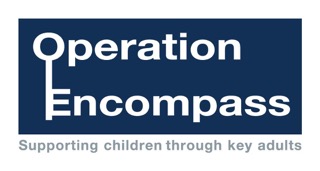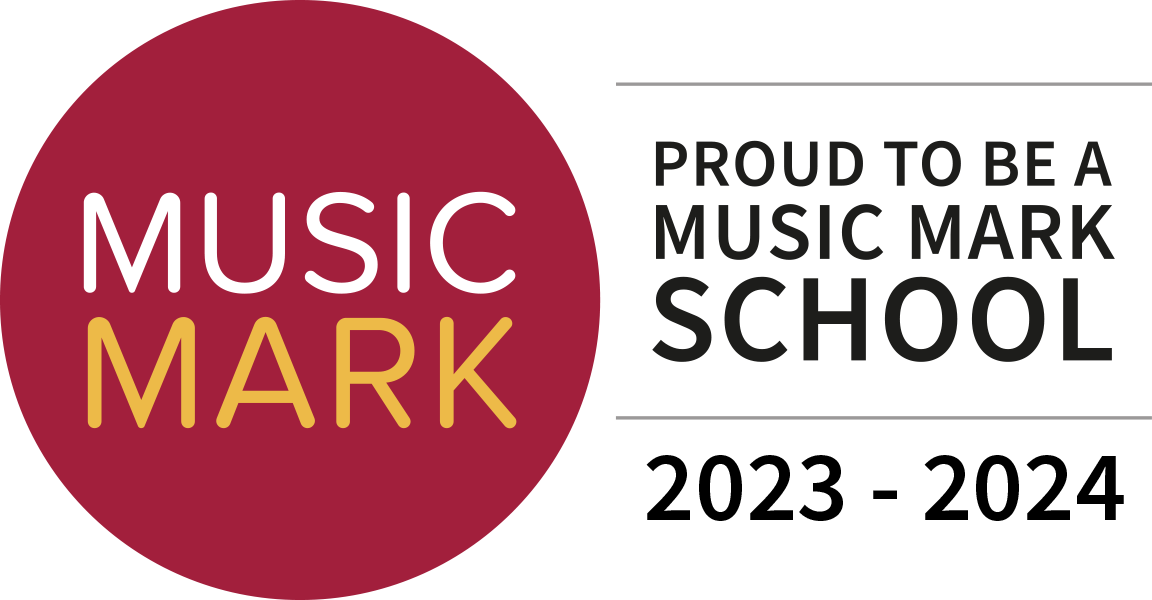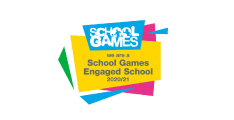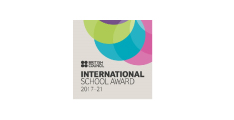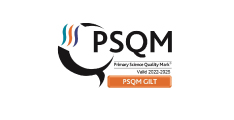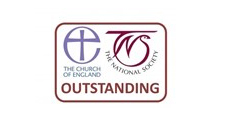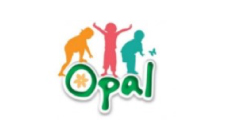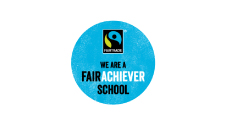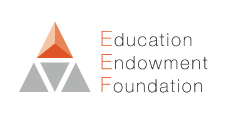At Cragside Church of England Primary School ‘High Achievement for All’ is central to our culture. We believe that every individual child should be given the opportunity to achieve their full potential. Our school vision, ‘Let Your Light Shine’ is taken from St Matthew’s Gospel and encapsulates our relentless drive that all shine bright and flourish in all areas including academically, physically, socially, emotionally, spiritually and compassionately.
We seek to be a caring, inclusive and compassionate school where love, guidance and thoughtfulness of others is central to our vision. We are a school where similarities and differences are celebrated and respected. A school where everyone feels valued and where everyone has the opportunity to SHINE BRIGHT.
Our school curriculum is underpinned by the Christian and British values that we hold dear at our school. The curriculum is the means by which the school achieves its objective of educating children in the knowledge, skills and understanding that they need in order to lead fulfilling lives. Our curriculum, including extra-curricular opportunities and home learning, is intended to inspire a sense of wonder, a love of learning and a thirst for knowledge. “Wonder is the beginning of Wisdom.” (Socrates)
At Cragside C of E Primary School, this is achieved through a combination of our drive for all teaching and support of children to be of the highest possible quality and our emphasis on high quality, personalised coaching of staff to enable that to happen. All staff take responsibility for caring for our children, this enables our children to be socially and emotionally ready to achieve the highest possible standards in order to fulfil their potential.
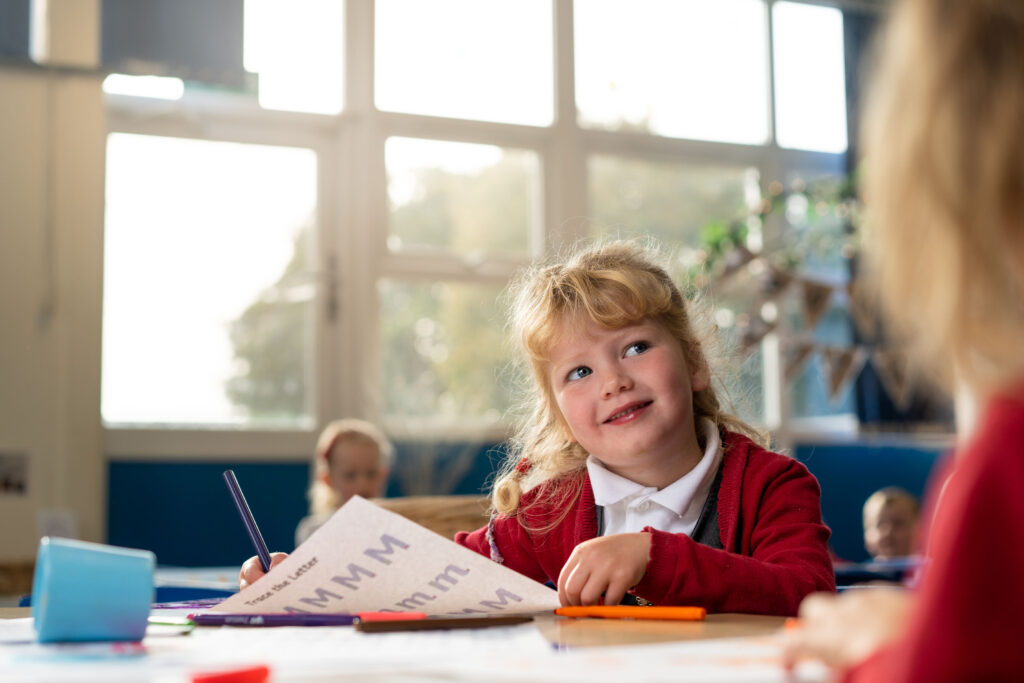
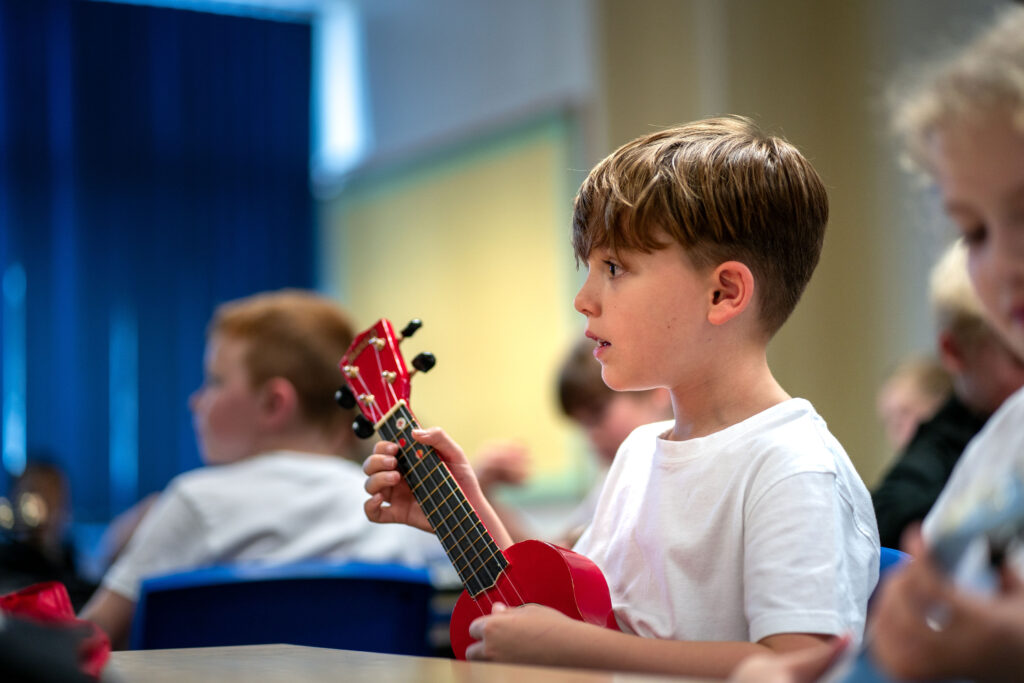
The Curriculum at Cragside has been developed and planned for to inspire all of our children to develop a love of learning, a thirst for knowledge, personal growth and development. It includes not only the formal requirements of the National Curriculum, but also the various extra-curricular activities that the school organises in order to enrich the children’s experiences and cultural capital. Our broad and balanced curriculum enables all children to acquire the skills, knowledge, understanding and vocabulary of a wide range of subjects, which will enable all to make progress and achieve from their varying starting points. We are proud that our curriculum also includes the ‘hidden curriculum’ – what the children learn from the way they are nurtured, treated and expected to behave. We want children to grow into positive, transformative, responsible people, who can work and cooperate with others while at the same time developing their knowledge and skills, in order to achieve their true potential and SHINE BRIGHT.
We seek to ensure that learning is memorable and that our curriculum provides a window to the wider world, to inspire our children to be advocates of change. Our Curriculum has opportunities for children to engage in international activities, to provide a meaningful context for this. The school uses enriching texts threaded into the global goals for sustainability which open up possibilities for everyone to be great global neighbours. Throughout our curriculum we plan specific opportunities to develop learners spiritually as well as academically. Teachers and subject leaders provide opportunities for children to look in, at themselves, look out towards others both locally and globally and to look up to something beyond the physical.
Curriculum Documents
Whole school Curriculum overview
Click here to access our Whole school curriculum overview
Nursery Curriculum Year overview
Year Overview – Download
Curriculum Overview
Maths
At Cragside Church of England Primary School we are committed to developing confident mathematicians who are proficient in all areas of the Primary Maths curriculum. We use the White Rose & NCETM materials to support us in planning and teaching engaging and exciting maths lessons. We want all of our children to master maths. Mastering maths means that children acquire a deep, long-term, secure and adaptable understanding of the subject. The phrase ‘teaching for mastery’ describes the elements of classroom practice and school organisation that combine to give pupils the best chances of mastering maths. Achieving mastery means acquiring a solid enough understanding of the maths that’s been taught to enable pupils to move on to more advanced material. We teach for mastery at Cragside using the following five big ideas:
Coherence
Lessons are broken down into small connected steps that gradually unfold each concept, providing access for all children and leading to a generalisation of the concept and the ability to apply the concept to a range of contexts.
Representation and Structure
Representations used in lessons expose the mathematical structure being taught, the aim being that students can do the maths without recourse to the representation. The children are presented with a wide range of representations putting maths into a meaningful, real-life context. This makes understanding the abstract easier.
Mathematical Thinking
If taught ideas are to be understood deeply, they must not merely be passively received but must be worked on by the student: thought about, reasoned with and discussed with others. Our maths lessons have a focus on the teaching of key mathematical vocabulary and the use of stem sentences to scaffold and support rich mathematical discussions about the children’s thinking.
Fluency
Quick and efficient recall of facts and procedures and the flexibility to move between different contexts and representations of mathematics. At Cragside we focus daily on recalling facts using the four operations. This means the children grow in confidence to become quick and efficient at calculation and can transfer and apply these skills in a range of contexts
Variation
Variation is used in two ways: It is firstly about how the teacher represents the concept being taught, often in more than one way, to draw attention to critical aspects, and to develop deep and holistic understanding. It is also about the sequencing of the episodes, activities and exercises used within a lesson and follow up practice, paying attention to what is kept the same and what changes, to connect the mathematics and draw attention to mathematical relationships and structure.
English – Reading, Writing and Phonics
Reading
At Cragside C of E Primary School, English and the teaching of English is the foundation of our curriculum. Our main aim is to ensure every single child becomes primary literate and progresses in the areas of reading, writing, speaking and listening. English at Cragside C of E Primary School will not only be a daily discrete lesson, but is at the cornerstone of the entire curriculum. It is embedded within all our lessons and we will strive for a high level of English for all, allowing our children
to shine bright in their confidence and ability in reading. We follow the recommendations from the EEF and CLPE and as a result use only the best high-quality texts, immersing children in vocabulary rich learning environments and ensuring new curriculum expectations and the progression of skills are met, the children at Cragside C of E Primary will be exposed to a language heavy, creative
and continuous English curriculum which will not only enable them to become primary literate but will also develop a love of reading, joy in creative writing and purposeful speaking and listening. Our vision is for the creativity to be at the helm of our English curriculum and for children to learn new skills in a fun and engaging way. We foster a ‘can do’ attitude and believe that all children can become fluent readers who read not only for instructional and research purposes but we also aim to create an ethos of reading for pleasure.
All teachers and teaching assistants are fully trained to teach phonics through the Read Write Inc phonics scheme. In Reception, acquiring phonic skills begins with speaking and listening. Children develop their use of detail and vocabulary and their ability to listen carefully and respond accurately to sounds, questions and instructions. In the autumn term, we teach children phonemes following the sequence set out in RWI. Children learn the sound, an action and the formation of each grapheme. We practise listening for sounds at the beginning, in the middle, and at the ends of words. We also practise blending sounds together verbally to make words. As the children become more confident, we teach them how to put these single sounds together to read and write words. Throughout the year, we constantly reinforce the importance of correct formation of these letters, with the support of Read Write Inc and practising in different ways, such as using glitter or
playdough.
In Key Stage 1, the children continue to follow the RWI scheme but we enhance and support this with a wide range of resources such as whiteboard writing activities, card games, flash cards, interactive on-line and published games, as well as the many interactive activities suggested in the scheme itself. In our outdoor learning areas children are supported further by highly engaging RWI displays including: mark making, chalking and writing in porridge oats and salt dough. Following our
participation in the RWI research through the EEF, we have found that the rigorous structure and guidance of the RWI scheme ensures a full coverage of phonic sounds and skills and that the daily lessons ensure the children apply and consolidate their knowledge in a variety of contexts. This then allows them to link phonic rules and strategies to their writing and reading tasks effectively. The basis of our scheme, is the Read Write Inc reading scheme. We ensure that the books that children take home to read are carefully matched to their phonic ability. We also ensure children take home a range of fiction and non-fiction books to read with families, to further develop reading comprehension and their love of reading for pleasure. As the children become more confident readers, we supplement their reading further with a range of reading scheme books including the Collins Big Cat, Oxford Reading Tree books. We use the Power of Reading scheme from the end of RWInc in Year 2 to Year 6, to ensure children are taught to read using a balanced approach, which ensures reading comprehension is taught alongside the teaching of phonics. The Power of Reading book choices from CLPE, is supported with highly engaging teaching materials, which are proven to enhance the children’s engagement with texts, and further develop a read for pleasure culture.
Writing
At Cragside CE Primary School we believe that all pupils should be able to confidently communicate their knowledge, ideas and emotions through their writing. We want pupils to acquire a wide vocabulary, a solid understanding of grammar and be able to spell new words by effectively applying the spelling patterns and rules they learn throughout their time in primary school. We want them to write clearly, accurately and coherently, adapting their language and style in and for a range of contexts, purposes and audiences. We believe that all pupils should be encouraged to take pride in the presentation of their writing, in part by developing a good, joined, handwriting style by the time they move to secondary school. We believe that all good writers refine and edit their writing over time, so we want children to develop independence in being able to identify their own areas for improvement in all pieces of writing, editing their work effectively during and after the writing process. We do not put ceilings on what pupils can achieve in writing and we do not hold pre-conceptions about any pupils’ ability to make progress. We understand the importance of parents and carers in supporting their children to develop both grammar, spelling and composition skills, and so we encourage a home-school partnership which enables parents and carers to understand how to enhance the skills being taught in school through newsletters, parent meetings and workshops.
We teach English as whole class lessons, so that all children have access to the age-related skills and knowledge contained in the National Curriculum. Within lessons, teachers and learning support assistants target support as needed to all pupils to achieve at an age-related level or higher. This may involve a greater level of scaffolding and access to additional support materials such as Writers Toolkits, Word Banks or a greater level of modelling. AMA are given opportunities to extend their writing in a variety of ways, including through showing greater control in their writing, a deeper understanding of the impact that their writing has on the reader and by using a higher level of vocabulary and grammar features. Spellings are taught according to the rules and words contained in Appendix 1 of the English National Curriculum through Emile. Teachers deliver discrete spelling lessons weekly with a range of activities used to ensure engagement of all. Children will have a copy of spellings to go home weekly in reading journals to enable them to be reinforced at home. When marking work, teachers identify words that children have spelt incorrectly, highlighting these with pink and writing the correct spelling in the margin using green ink. Children must then respond to this marking using a purple pen, practising the correct spelling.
Grammar and punctuation knowledge and skills are taught through English lessons as much as possible. Teachers plan to teach the required skills through the genres of writing that they are teaching, linking it to the genre to make it more connected with the intended writing outcome. Teachers sometimes focus on particular grammar and punctuation skills as discrete lessons, if needed, to embed and develop their understanding or to consolidate skills. Each year group have a yearly overview of the writing genres, both narrative and non-fiction, using Power of Reading and Wordsmith that they will teach. These have been planned to ensure correct coverage of the key genres as well as build on skills from year to year. Units will take between two and six weeks to complete, and the outcome of each unit will be a number of extended pieces of writing across differing genres which will be used to assess the pupil’s skills against the agreed success criteria. Every narrative unit is linked to a high-quality text that acts as a stimulus for teaching the identified text, word and sentence level features that children will be expected to include in their extended writing outcome for that unit.
Phonics
Reading is at the very heart of our school. Our pupils learn to read quickly and effectively using the Read Write Inc. Phonics programme. In RWI pupils:
- Decode letter-sound correspondences quickly and effortlessly, using their phonic knowledge and skills
- Read common exception words on sight
- Read with fluency, expression and understanding
Children also have opportunities to apply their sound recognition skills on ‘nonsense’ words, in preparation for the Phonics Screening Check in June.
In Nursery, our children enjoy immersive story experiences using high quality texts. They engage and explore the rich language and vocabulary in carefully chosen stories and rhymes. In the last term of Nursery, children are taught to say the sounds of letters and will begin to blend the sounds into words. RWI is currently delivered daily to our Reception and Year 2 children in streamed groups. In KS2 (where necessary) the RWI programme is delivered through small group and 1:1 intervention to children who did not meet the required standard to pass the Phonics Screening Check, as well as a small number of children who need further support to maintain the expected level of reading.
We make sure that pupils read books that are closely matched to their increasing knowledge of phonics. Re-reading and discussing these books with the teacher helps to support confidence in decoding. Alongside this, teachers read a wide range of stories, poetry and non-fiction to pupils across the curriculum.
Science
Science at Cragside is focused on developing the children’s scientific skills and subject knowledge through our dual action curriculum. We strive to develop a sense of awe and wonder about the world around us through the use of themed days/weeks, citizen science projects and visits from parents, experts and people from the STEM sector.
We believe that scientific learning is best when it is grounded in real world experiences which is why we focus on practical, hands-on learning. Children are able to explore their own questions and investigate scientific phenomena for themselves. We use cutting edge ICT programs, such as Explorify, to help foster scientific talk within our classrooms.
Great science teaching requires great science teachers and we spend a lot of time, as a staff team, up skilling each other through peer mentoring and internal and external professional development. We take part in cutting edge national trials and strive to be at the forefront of recognised best practice and pedagogy.
Science is for everyone and has the potential to unlock the world around us. It is exciting. It is inspirational. It is Cragside.
RE
As a Church of England School RE is taught as a core subject at Cragside. The key purpose of RE in our school is to enable pupils to hold balanced and informed conversations about religion, world views, faith and beliefs.
We enable pupils to know about and understand Christianity as a living faith that influences the lives of people worldwide and as the religion that has most shaped British culture and heritage. We want our pupils to know and understand about other major world religions and non-religious worldviews, their impact on society, culture and the wider world, enabling pupils to express ideas and insights. We encourage the development of pupils’ own spiritual and philosophical convictions, exploring and enriching their own beliefs and values.
We follow the Northumberland agreed syllabus when teaching RE supported by the Diocesan Syllabus and the Understanding Christianity materials. All our lessons use the ‘Big Questions’ approach which encourages children to think about life’s big questions in relation to faith and religion. The content of the RE curriculum is primarily Christian but a range of other faiths and world views are also taught across the school.
All learning in RE focuses on theology, philosophy and human and social sciences. We explore where religious ideas have come from and how they have evolved over time; we consider morality, thinking about how and why we make judgements and decisions and we believe it is vital for our pupils to understand the lived and diverse reality of religions and world views and their impact on and place in society today. It’s about the interaction between believing, thinking and living leading to a real depth of knowledge and understanding which encourages our learners to become compassionate, free thinking adults.
Collective Worship at Cragside
At Cragside Church of England Primary School we recognise that children growing up in a rapidly changing society need to have a firm foundation of values and beliefs. These values and beliefs are an inherent part of the whole school ethos and are underpinned through Collective Worship.
We always seek to reflect in our worship, the Christian foundation of the school and its care for all who work there. Children are helped to understand the purpose of Christian Worship, share in it and appreciate the value of it. Daily acts of worship take place in school and seek to explore life’s big questions about spirituality and faith.
Our central aims of Collective Worship are:
- To develop spiritually as a whole school community and as individuals
- To Provide opportunities to experience, reflect on and respond to our world
- To provide our pupils with regular opportunities for stillness, reflection and prayer
- To explore big questions about spirituality and faith
- To explore the teachings of Jesus and the Bible and think about how they are relevant in our life as a school
- To promote spiritual, moral, social and cultural development
- To celebrate the values and worth of this school and Christian community including the sharing of the gifts and talents of all our pupils
- To ensure the our values and ethos are central to the life of the school and have a real and meaningful impact on all our lives
- To help children develop respect and understanding both of the nature and language of Christian worship
- To help children develop respect and sensitivity to the beliefs and values of others
- Create in all a sense of belonging.
- To provide children with opportunities to put their faith into action
Geography
At Cragside Primary, Geography is a creative subject that allows for collaboration and helps to understand the world around us. Learning Geography through fieldwork skills, design projects and map work are at the heart of each topic. The enquiry and playful element are apparent, and the teachers have confidence to do more practical lessons.
Cragside Primary is lucky to have fields and a forest within their school grounds which are used well and allow for Geography and outdoor learning. Each topic in each year group is given questions to consider for enquiry and a project or fieldwork ideas. Geography at Cragside is closely linked to the 2030 Climate Change Goals for Sustainability with each year group linked to a certain global goal. The social learning and education in being a good global neighbour is important at Cragside and we encourage all the children to become advocates for change.
History
The history curriculum at Cragside enables children to gain coherent knowledge and understanding of Britain’s past and that of the wider world through a kinaesthetic and creative teaching approach. History lessons aim to develop a fascination about how people’s lives have changed over the centuries, and inspire children’s curiosity to know more about the past. We aim to empower children to ask perceptive questions, think critically, weigh evidence, sift arguments, and develop perspective and judgement. Through the teaching of history, we endeavour to teach children to understand the complexity of people’s lives, the process of change, the diversity of societies and relationships between different groups, as well as their own identity and the challenges of their time.
History lessons at Cragside focus on developing historical skills and children working as historians. We intend for our children to have real life experiences and learn about history in a creative and hands on approach. History is taught in blocks throughout the year, so that children achieve depth in their learning. Teachers have identified the key knowledge and skills of each topic and consideration has been given to ensure progression across topics throughout each year group across the school. Where possible, a cross-curricular approach is taken within history lessons to provide rich learning opportunities, using subjects such as drama and art to enhance the topic being taught. By the end of year 6, children will have a chronological understanding of British history from the Stone Age to the present day. They are able to draw comparisons and make connections between different time periods and their own lives.
Modern Foreign Language
At Cragside C of E Primary School we teach French as our chosen modern foreign language.
To ensure high standards of teaching and learning in French, we implement a curriculum that is progressive throughout Key Stage Two. French is taught by class teachers covering at least one unit per half term. We follow the Language Angels teaching scheme.
French lessons include:
- PowerPoints and interactive whiteboard materials
- Interactive games
- Songs & raps
- Differentiated desk-based consolidation activities
- Worksheets
Each lesson will focus on a combination of the 5 key language learning skills (speaking, listening, reading, writing and grammar).
PE
At Cragside we feel it is vital to have a positive attitude towards Physical Education, School Sport and Physical Activity (PESSPA). PESSPA is an important part of school life, giving pupils the opportunity to be physically active each and every day to help with physical and mental health as well as developing skills and learning about new sports.
PE lessons at Cragside are designed to be challenging, engaging and diverse to give pupils the opportunity to push themselves in a range of different sports and physical activities. We provide opportunities for pupils to achieve their goals but also experience many new ways of keeping active through a varied and engaging PESSPA programme; allowing our children to discover new loves and talents whilst developing skills and improving their health and fitness. We ensure that all children receive a PE curriculum that is; varied, inclusive, accessible and balanced. Children will benefit from a wide range of skills being taught not only in Physical Education lessons but in afterschool physical activities and sports competitions.
Teachers follow GetSet4PE along with their own professional knowledge, experiences and learning to provide the pupils purposeful, exciting and memorable lessons in a safe and stimulating environment. Pupils are challenged and supported at their level, giving them confidence and ensuring lessons are meaningful for all. Through PE children also develop important life skills which they will transfer into all areas of school and which are vital for their future. Skills including: communication, teamwork, leadership, tolerance, cooperation, determination and sportsmanship are invaluable in preparing the children for building effective relationships at school, at home and in the future.
Our PE curriculum offers children the chance to learn and develop in many areas (Invasion Games, Net and Wall Games, Dance, Yoga, Gymnastics, Athletics, Fundamental and Ball Skills, Swimming, Target Sports and Fitness), Offering all pupils a range of exciting sports and activities to help them stay healthy and develop sport specific skills.
PSHCE with Relationships and Sex Education (RSE)
At Cragside C of E Primary School, PSHCE with RSE is underpinned by our school’s aims, ethos, Christian Vision and safeguarding. Weaving through the heart of our teaching, is a commitment to enhancing and promoting our core Christian Values. It strongly reflects our school vision and the associated values of our school and develops character and virtues such as honesty, integrity, self- control, courage, humility, kindness, forgiveness, generosity and a sense of justice. It encourages relationships that are hopeful and aspirational.
Our PSHCE with RSE curriculum empowers our children to cherish themselves and others as unique and wonderfully made, and teaches them how to form healthy relationships where they respect and offer dignity to others. It enables our children to become independent, confident, healthy and responsible members of society, as well as developing the “whole child” intellectually, morally, socially and spiritually. Our curriculum also helps our children to develop skills and aptitudes, such as teamwork, communication, and resilience, all of which are crucial to navigating the challenges and opportunities of the modern world.
Through our whole-school approach to PSHCE with RSE, it is our belief that excellence in these areas will lead to excellence across the curriculum and beyond in later life. We understand, through research, that children who are emotionally healthy do better at school. PSHCE with RSE at Cragside aims to help our children to achieve their potential by supporting their wellbeing and tackling issues that can affect their ability to learn, such as anxiety and unhealthy relationships. PSHCE with RSE at Cragside provides our children with the knowledge that will enable them to navigate and contextualise the world in which they live. They will be taught how to express their own views and make their own informed decisions.
Our curriculum equips our children with relevant and meaningful content, which is supported through a strong emphasis on emotional literacy, building resilience and nurturing mental and physical health. Our curriculum promotes healthy resilient relationships set in the context of character and virtue development.
Our curriculum focuses on six broad topics:
- Healthy and Happy Friendships
- Similarities and Differences
- Caring and Responsibilities
- Families and Committed Relationships
- Healthy Body, Healthy Mind
- Coping with Change
Computing
Cragside Church of England Primary School believes that every child should have the right to a curriculum that champions excellence; supporting pupils in achieving to the very best of their abilities. We understand the immense value technology plays not only in supporting the Computing and whole school curriculum but overall in the day-to-day life of our school. We believe that technology can provide: enhanced collaborative learning opportunities; better engagement of pupils; easier access to rich content; support conceptual understanding of new concepts and can support the needs of all our pupils.
We aim to provide an exciting, rich, relevant and challenging Computing curriculum for all pupils which enthuses and equips children with the capability to use technology throughout their lives. Children are given access to a variety of high quality hardware, software and unplugged resources. We promote critical thinking, reflective learning and a ‘can do’ attitude for all our pupils, particularly when engaging with technology and its associated resources is instilled in our teaching of Computing. At cragside we teach pupils to become responsible, respectful and competent users of data, information and communication technology, and each pupil to understand the importance of governance and legislation regarding how information is used, stored, created, retrieved, shared and manipulated. We equip pupils with skills, strategies and knowledge that will enable them to reap the benefits of the online world, whilst being able to minimise risk to themselves or others. At Cragside we use technology imaginatively and creatively to inspire and engage all pupils, as well as using it to be more efficient in the tasks associated with running an effective school.
Art
Art at Cragside ensures that the children are provided with the opportunities to develop and extend skills and an opportunity to express their individual interests and ideas. Through our teaching and learning, Art engages, inspires and challenges pupils, equipping them with the knowledge and skills to experiment, invent and create their own artwork.
As children progress, they become more able to think critically and develop a more rigorous understanding. They also understand how art reflects and shapes our history, and contribute to the culture and creativity of our nation. These are cross curricular links which develop a concrete understanding of not only art, but various historical events and current topics.
Teachers follow a planning scheme to ensure all areas and skills within art are covered. The scheme provides detailed explanations and a clear structure to ensure the teachers have the skillset to deliver exceptional lessons to the children. Our teaching and learning is based on the National Curriculum and linked to topics to ensure a well-structured approach to this creative subject. We use the art lessons to inform future lessons; ensuring children are supported and challenged appropriately. This is analysed to inform and address any gaps in attainment. Children in Foundation Stage are assessed within Expressive Arts and Design which is fed into the weekly activities the children complete.
Throughout the school, the work of famous local, national and international artists are explored to enhance the children’s learning. The children’s learning is further enhanced with art activities which may be in year groups, phases and including whole school projects. Children have the opportunity for collaborative working and exploring the different styles and techniques of a range of artists.
Music is a universal language that enables all to be creative, expressive and artistic. At Cragside our aim is to provide a high-quality music curriculum in a way that inspires our children to have a love and passion for the subject. Our music lessons help to promote wellbeing; increasing the children’s self-confidence and sense of achievement whilst providing aspiring musicians with a solid foundation to further their talents.
We use a world-leading music program, Charanga, for the delivery of music lessons. The teaching of music is progressive, allowing the children to build upon their prior knowledge and develop their skills through listening and appraising, singing, improvisation, movement, dance and playing instruments.
At Cragside, we work with Music Partnership North to enrich our musical opportunities within school. These sessions are taught by specialist music teachers. In Year 3, the children will have the chance to participate in weekly ukulele lessons throughout the autumn and spring terms. In Year 5, the children will engage in a musical project called ‘Rock Band’ where they will learn to sing, play and perform a song together in the summer term. Additionally, we offer private music tuition for the ukulele, djembe drums and violin that take place during or after school.
DT
Our DT vision is there to enable children to shine bright through a vigorous process of evaluating and iterating our designs. We want to nurture children who have no fear of failure, who can reflect and evaluate their designs. Give them opportunities to develop their creativity and problem solving skills.
Through this process, DT will help children develop many of the skills they will need in the future of work. We want our curriculum to excite, stretch and motivate all students. Iterative design aspires to be the driving force of this curriculum, developing a culture where we are excited to improve our products through purposeful evaluation and re-designs. All projects follow a user centred design process, solving a need, opportunity or want.
DT units follow the following learning journey: Investigate, Brief (something, for somebody for some purpose) Design, Make, Test, Evaluate, Iterate. The children need to make design decisions and make innovations. In the early years we give our children more scaffolding and less design decisions. This is slowly reversed as Children move up through the school.
Music
At Cragside C of E Primary School, we encourage and inspire all children to develop a love of music through singing, composing, performing and listening to different kinds of music in our lessons. We endeavour to provide a wide range of other musical opportunities so that children can flourish outside of curriculum lessons and build upon their knowledge and skill. We aim to provide families with information about further activities that take place outside of school.
Our long-term vision for music is that all children take part in high-quality weekly music lessons and can further progress their interests and skill through taking up an instrument or joining ‘Sing Up Club’. We offer a wide range of specialist taught lessons including Ukulele, Guitar, Djembe Drums, Flute, Clarinet. Our exciting whole class projects include Ukulele in Year 3, Rock Band in Year 6 and beginning this year, DJ Decks Project for Year 5. All children will be inspired to sing in weekly whole school singing assemblies, which will offer experiences to sing as a large group. Children will get the opportunity to share their performances with peers, families and the wider community of Cragside.
If you would like more information about our school curriculum please contact your child’s class teacher or email admin@cragside.northumberland.sch.uk.

